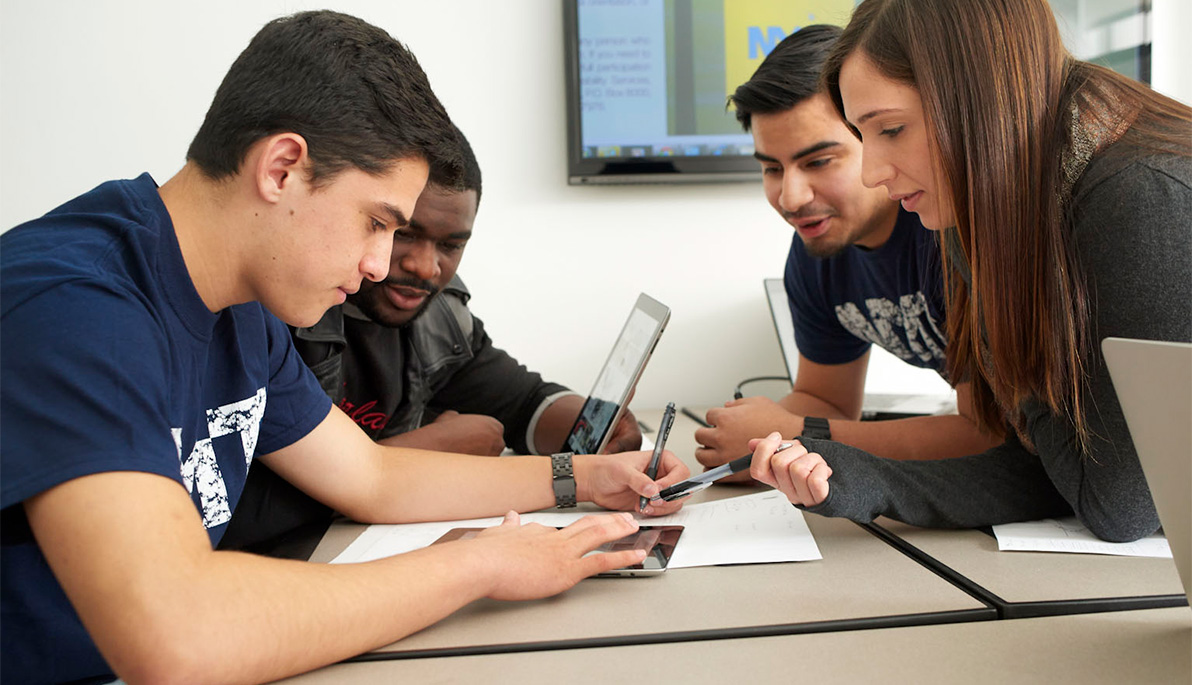News
ETIC Challenges Cyber Hackers to “Roll Up Their Sleeves”
November 16, 2018
The Entrepreneurship and Technology Innovation Center (ETIC) and its director, Mike Nizich, Ph.D., want NYIT students to dive in and get dirty—in a digital sense.
Nizich knows the value of a good hackathon. Day-long, clock-ticking coding sessions can promote problem-solving and polish programming skills, but only in the right combinations of topic and talent.
To that end, most of the ETIC’s twice-per-semester hackathons are populated exclusively by students and faculty from the College of Engineering and Computing Sciences, NYIT’s motherboards mothership.
But Nizich expects the next event in the 2018 hackathon rotation might break that mold. On November 30, the innovation center will host a programming marathon focused on cybersecurity that is more of a “software-development challenge” that’s inviting a wider talent pool to “roll their sleeves up and get their hands dirty.”
“This will attract more students, because it’s more on the software-development side than straight-up coding,” Nizich says. “So many different kinds of students take some kind of programming today.”
And cybersecurity is “a critical theme right now,” according to Nizich, who sees the November 30 contest as a chance to apply some of NYIT’s brightest thinking to current IT security issues and potentially create practical, real-world solutions.
He also sees a lot of parallels between the hackathons and the ETIC Design Challenge Series, another professional development program. Both require team members with complementary talents to collaborate on common problems, but the hackathons do it at hyperspeed, with time limits and encrypted challenges designed specifically to stump the band.
The team that solves the most challenges in the shortest amount of time wins—at least at most ETIC hackathons. The November 30 event will divert slightly, focusing more on the development of practical cybersecurity solutions for a world that increasingly needs them.
In either form, the ETIC hackathons serve their primary purpose: To yank students (and faculty) out of the lecture hall and zap their innovative juices. Combining different areas of knowledge, promoting teamwork, and setting time limits—which changes perspectives “from what they want to do to what they can do”—are all essential ingredients, according to Nizich.
“Students can benefit greatly from doing these high-impact challenges as supplements to their classroom work,” the director notes. “Working with experts in the field, performing in competitions, being forced to do something they know they can do and actually getting their hands dirty—that enriches their learning experience and broadens their knowledge base past the classroom.
“Even if they finish in third place or even just participate, when they have something like this on their résumé, it’s a big deal to [potential employers],” Nizich adds. “When they hear you worked for eight hours and solved 13 out of 15 challenges, and they hear you explain how you did it, it’s a lot more impressive than ‘this is what my teacher said.’”
Want to get involved? Register for ETIC's Cybersecurity Hackathon on November 30.




